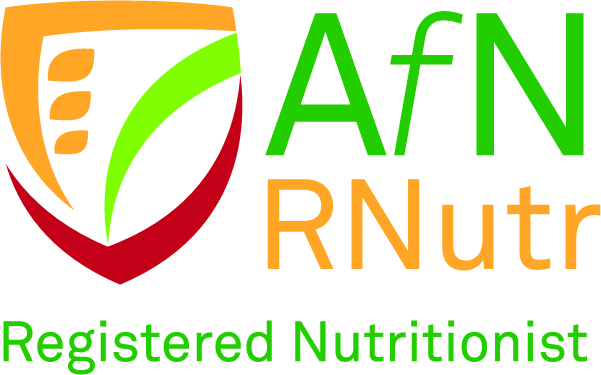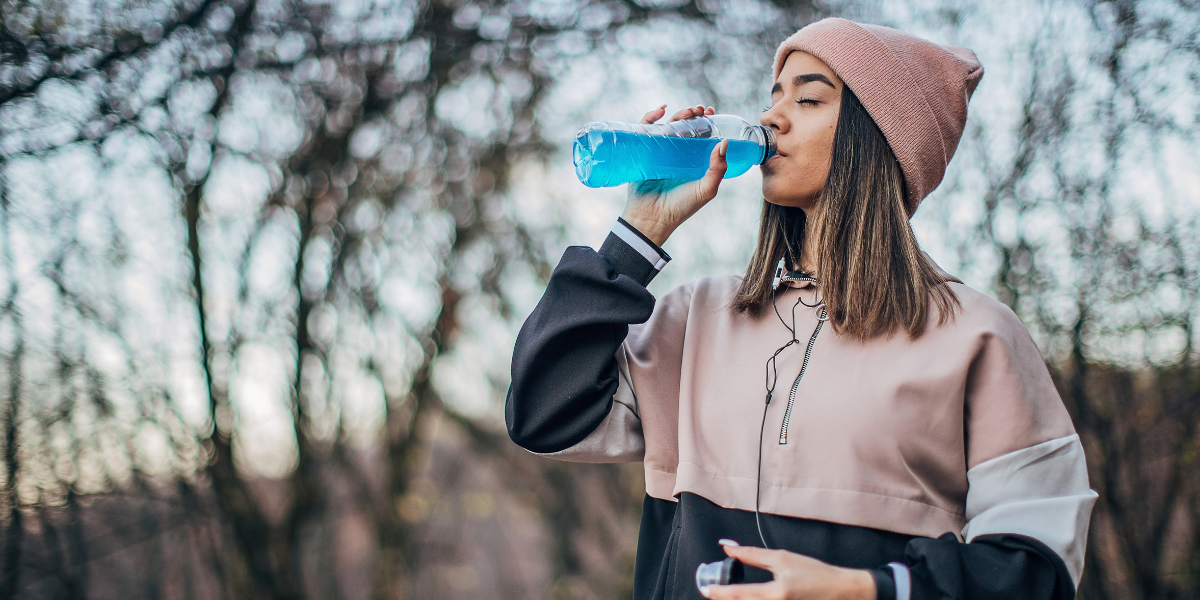Energy Drinks: Should Kids & Young People Be Drinking Them?
Energy drinks might seem like any other soft drink, but their contents could be causing a significant amount of harm to young people if consumed regularly.
This was recognised by the UK government in 2019, as they announced their plans to ban the sale of energy drinks to those under 16. However, this ban still hasn’t been put in place (mainly due to the pandemic and government changes), leaving these highly caffeinated, sugary drinks easily accessible to children and teenagers.
Whilst many supermarkets and schools have implemented a voluntary ban, the lack of formal regulation remains a concern. Particularly as there is sufficient evidence to suggest they have a detrimental impact on the health and wellbeing of young people.
I see teenagers gulping energy drinks down on the way to and from school and I fear that their popularity will continue to grow, as they’re marketed towards young people with their bright packaging, ‘cool’ image and use of influencers and celebrities to promote them.
It’s important that we don’t lose sight of this issue, so in this blog, I’m going to cover the risks of energy drink consumption on young people’s health and why I believe we need to implement regulation sooner rather than later.
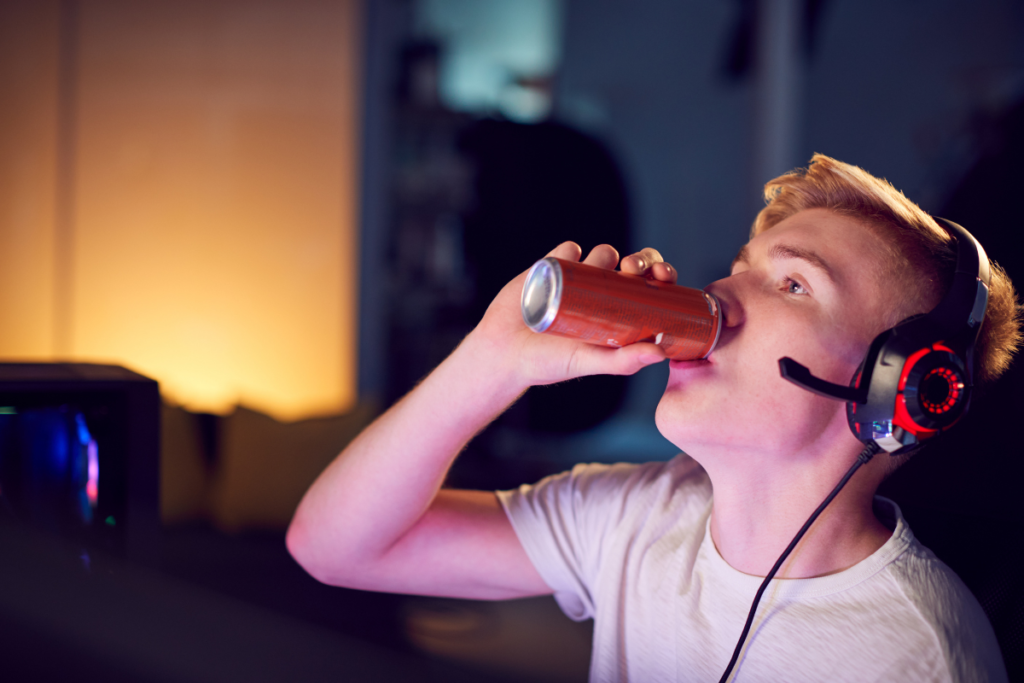
The Lowdown on Energy Drinks
Energy drinks are highly caffeinated, and many contain large amounts of sugar and calories (some sugar-free options are also available). Surprisingly, some drinks are also high in salt – including the popular Monster original drink (500ml).
These drinks are typically fortified with a variety of B vitamins and I’m seeing more and more promoting themselves as “natural” or “clean”. This could be an attempt to appear “healthier”, but these claims do not negate the negative effects of the high caffeine and sugar content.
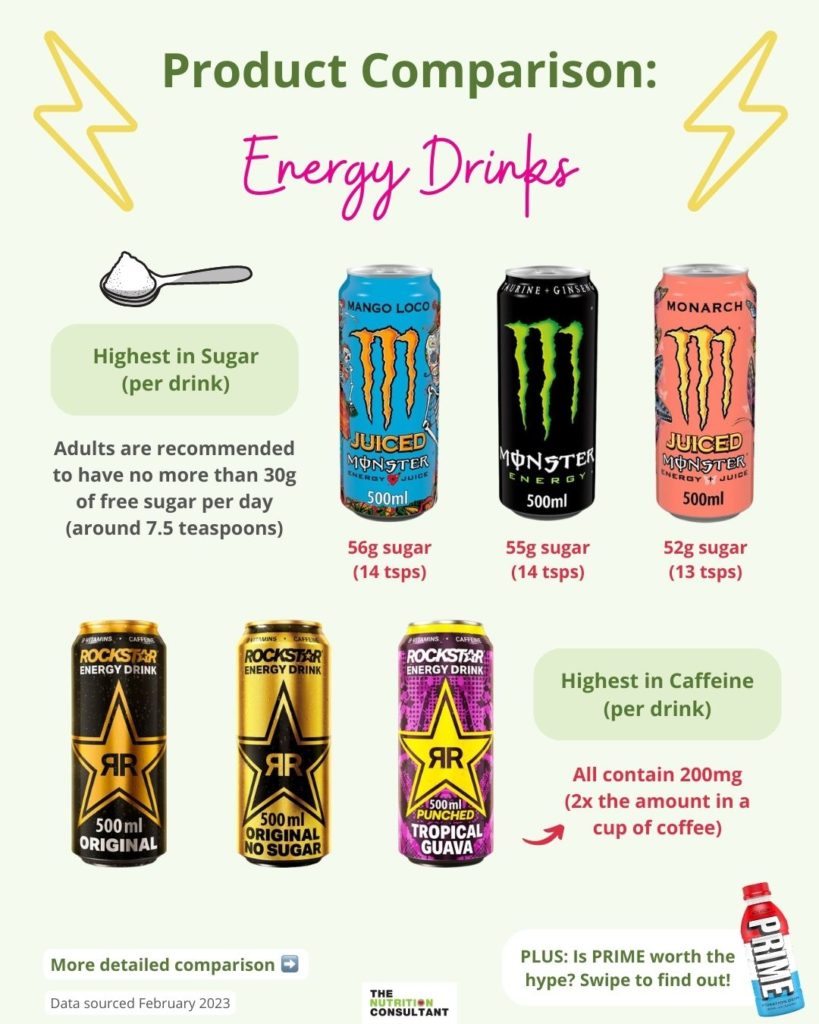
Energy Drink Consumption In Young People
Young people in the UK are among the highest consumers of energy drinks in Europe (Zucconi et al, 2013). Worryingly, nearly half of young people (aged 10-18 years) who drink energy drinks consume 2 or more cans of energy drinks in one sitting (Zucconi et al, 2013).
That could be as much as 400mg of caffeine in one go if you were to consume 2 Rockstar energy drinks – that is equivalent to drinking 4 cups of coffee!
Additionally, if a young person had 2 Monster Juiced Mango Loco drinks, they’d be consuming 112g of sugar. That’s nearly 4 times the daily recommended free sugar intake for teenagers – which is the same as having 28 teaspoons of sugar in one go!
One thing to note is that this data is from 2013, so it’s unknown if the voluntary ban in supermarkets and schools has had an impact, or if the pandemic had any effect on consumption (e.g. not being around external influences and no longer needing to keep up appearances to look ‘cool’).
That being said, now that things are back to normal and the energy drink industry continues to use targeted marketing to promote their drinks to young people, it’s very likely that their consumption remains a prominent issue.
This has been highlighted recently in the hype around a new energy and hydration drink brand called PRIME, which was created by 2 famous YouTubers with a largely younger audience. Reports have shown videos of children and teenagers fighting over bottles of these drinks in supermarkets, with bottles being resold for as much as £20 due to their limited supply.
Right now, people in the UK can only purchase the PRIME hydration drinks (which contain no added sugar or caffeine), however reports suggest that PRIME energy will be available in the UK soon. Whilst this energy drink does have a lot less sugar than other energy drinks, it has a very high caffeine content of 200mg of caffeine per can.
Based on the current hype around the non-caffeinated PRIME drinks, it’s highly likely that many young people will also be consuming the energy version when it arrives in the UK.
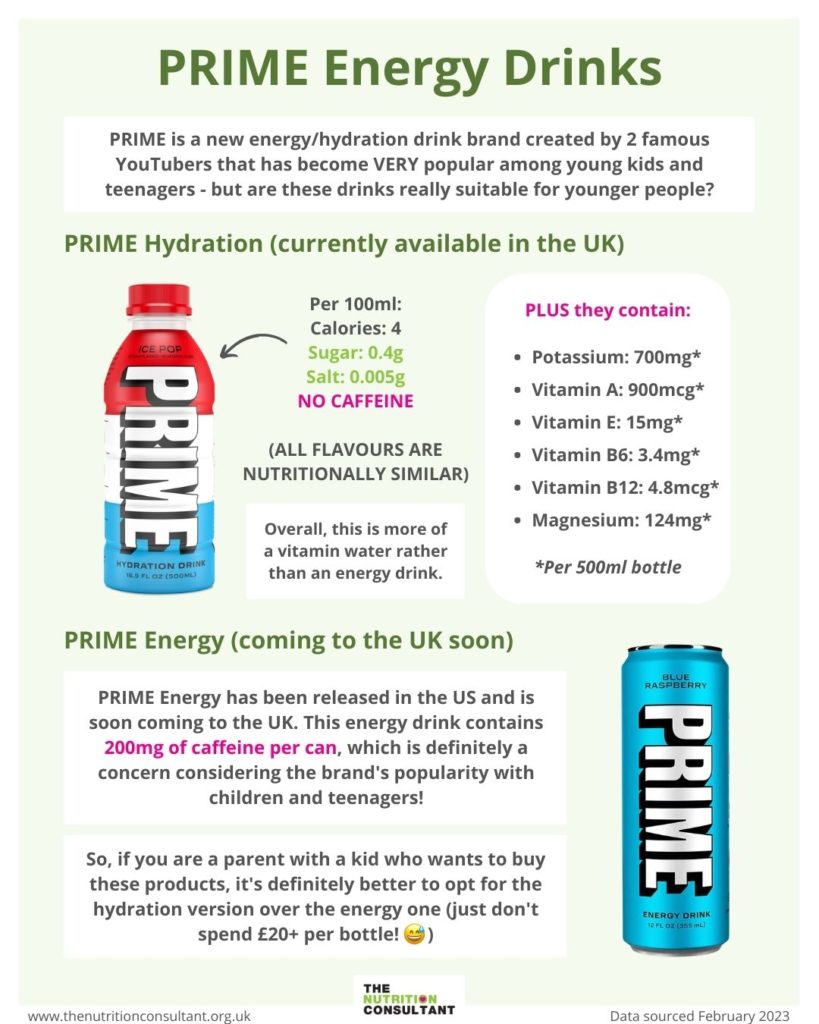
Risk To Young People
I’m very much an ‘everything in moderation’ kind of person, but I can’t help but shudder to think of the short- and long-term consequences consuming these drinks can have on young people.
It is suggested that energy drinks contribute to poor behaviour, headaches, palpitations, tooth decay, and can have severe impacts on sleep in young people (bearing in mind, this is a crucial stage for brain development and sleep is so important with this) (The Department for Health and Social Care, 2018).
In addition, some research has found a link between energy drink consumption and greater emotional difficulties and lower wellbeing in young people (Utter et al, 2018).
What’s worrying is that a large proportion of young people and parents are probably unaware of the dangers these energy drinks pose. Many might see them as just another soft drink (I’ve seen toddlers drinking them!).
Some studies have even reported that young people perceive energy drinks to be safe, as they don’t believe they’d be sold to them if the caffeine content was dangerously high (Visram et al, 2016).
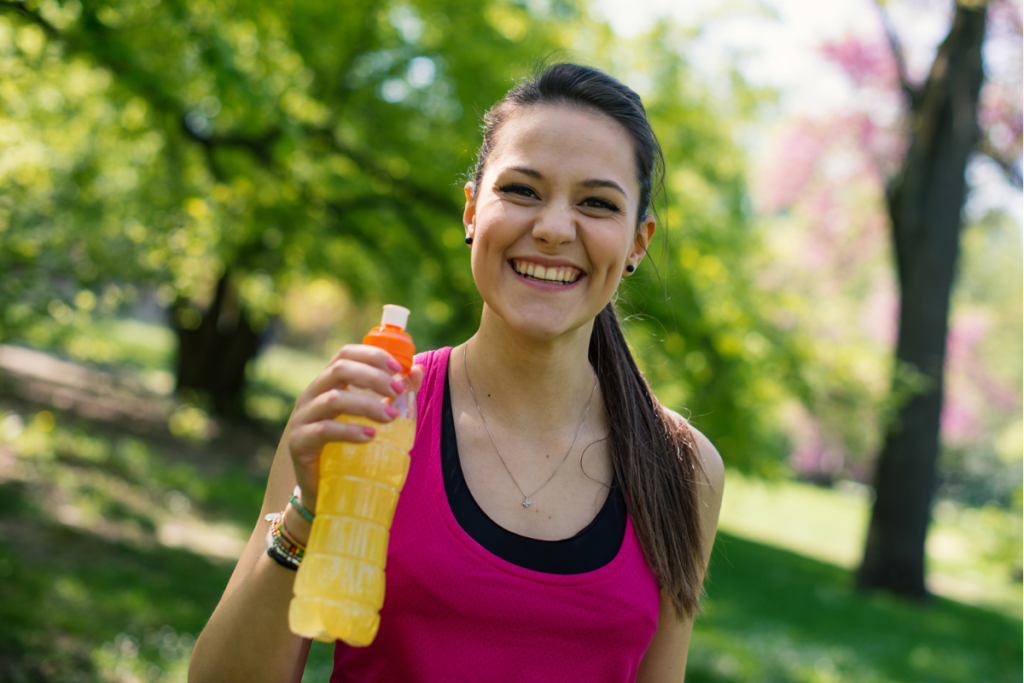
My Thoughts
Whilst I still believe these drinks have a place in the wider drinks market, I don’t think enough is being done to protect young people from the effects of energy drink consumption. Warnings saying “not recommended for children” is not enough in my opinion!
Of course, banning products could make kids want them more and I’m sure persistent teenagers will still find a way to get them. However, regulation in this area could be a vital tool to alert parents of their risks and to limit the number of teenagers becoming hooked. These are not just soft drinks and it’s unlikely all parents and young people really understand the difference.
Nutritional Comparison of Energy Drinks

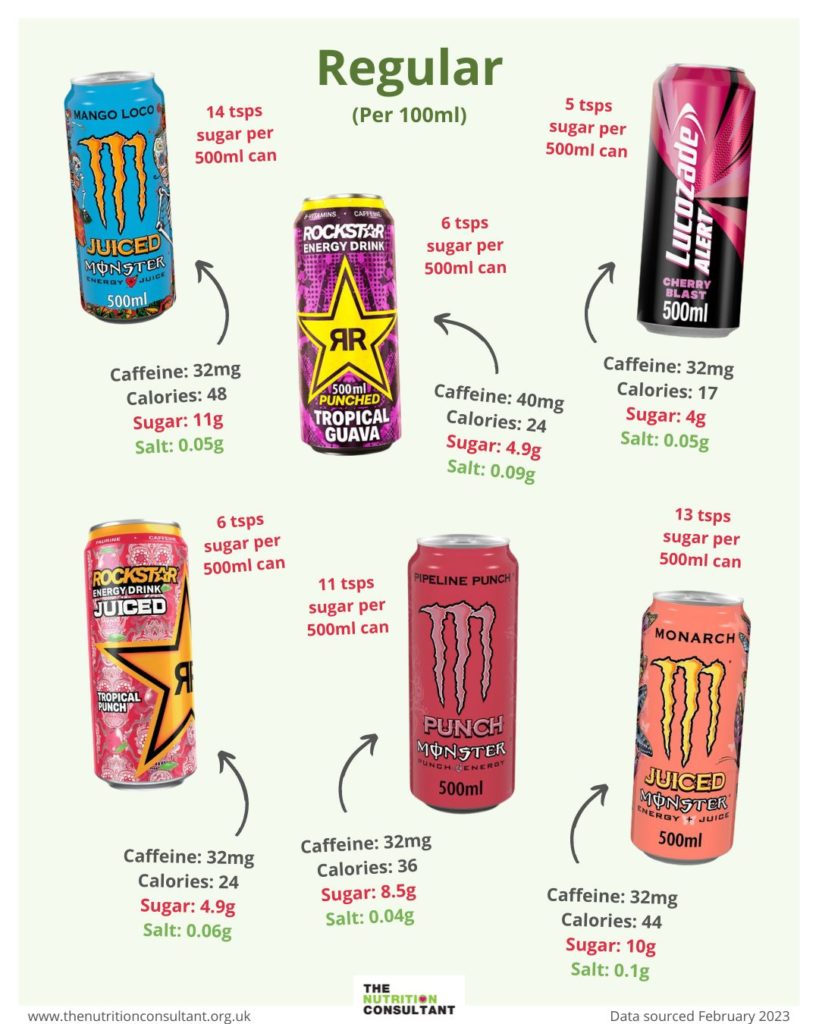
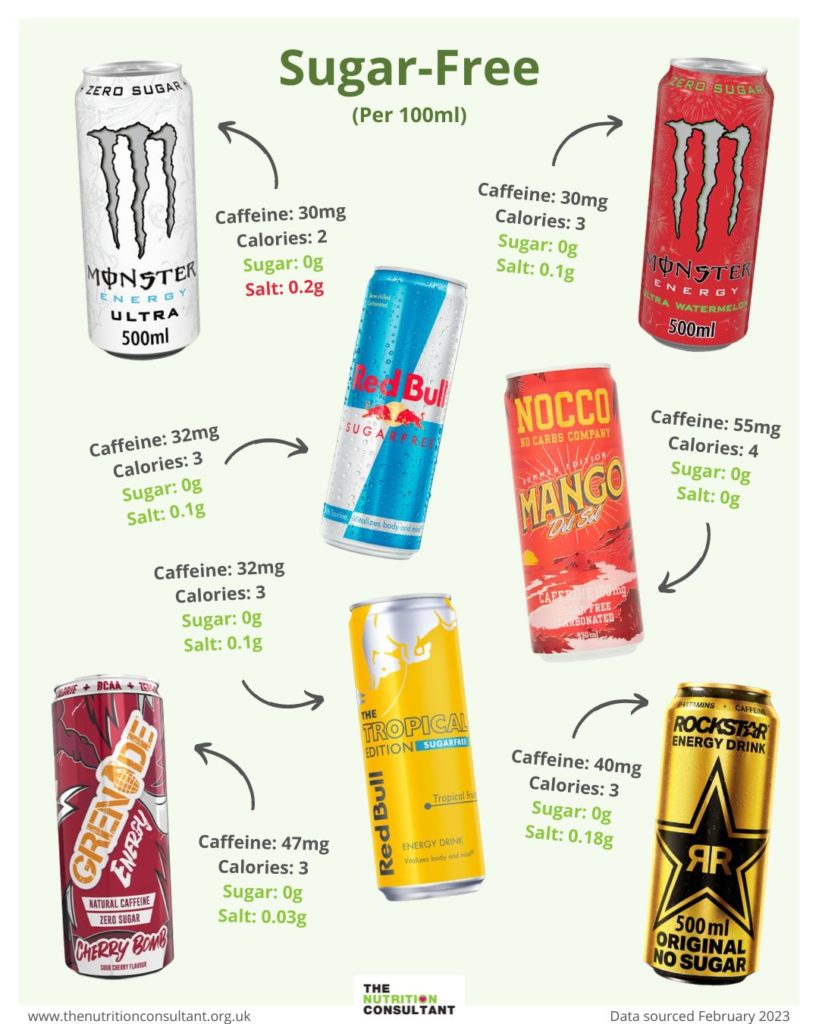
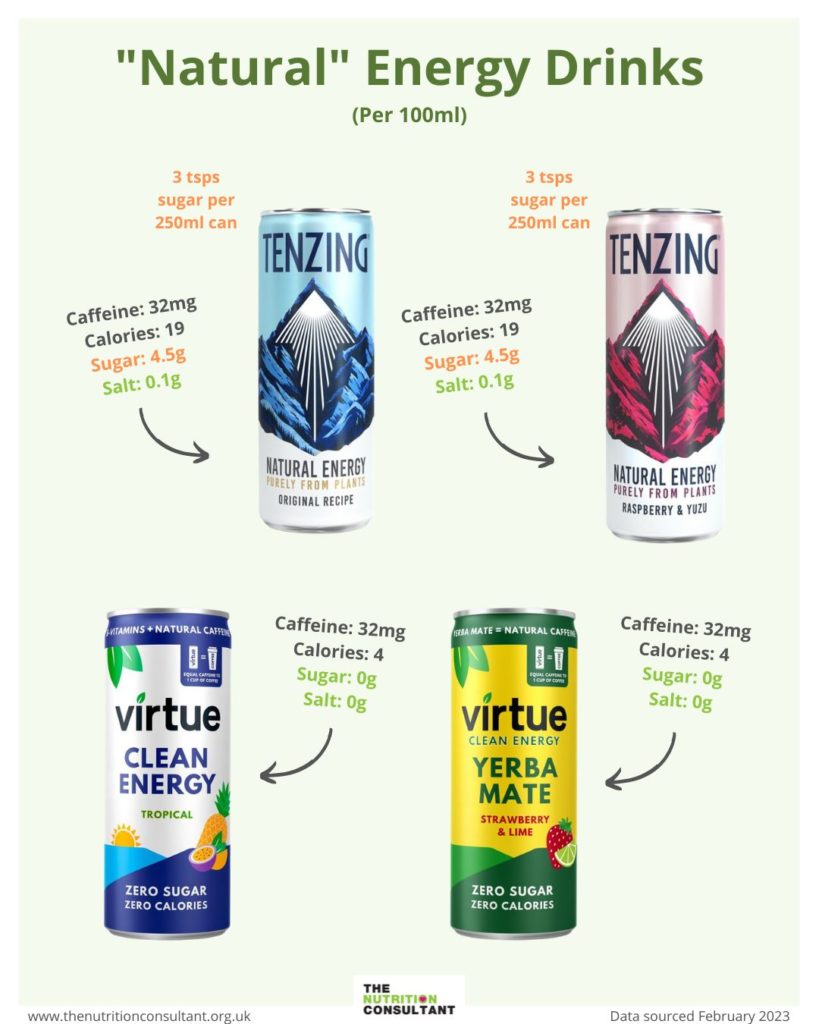
References
Zucconi, S., Volpato, C., Adinolfi, F., Gandini, E., Gentile, E., Loi, A. and Fioriti, L. (2013). Gathering consumption data on specific consumer groups of energy drinks. EFSA Supporting Publications, 10(3), p.394E.
The Department of Health and Social Care (2018). Consultation on proposal to end the sale of energy drinks to children. Available at:
https://assets.publishing.service.gov.uk/government/uploads/system/uploads/attachment_data/file/736398/consultation-on-ending-the-sale-of-energy-drinks-to-children.pdf (Accessed: October 2022)
Utter, J., Denny, S., Teevale, T. and Sheridan, J. (2018). Energy drink consumption among New Zealand adolescents: associations with mental health, health risk behaviours and body size. Journal of paediatrics and child health, 54(3), pp.279-283.
Visram, S., Cheetham, M., Riby, D.M., Crossley, S.J. and Lake, A.A. (2016). Consumption of energy drinks by children and young people: a rapid review examining evidence of physical effects and consumer attitudes. BMJ open, 6(10), p.e010380.
